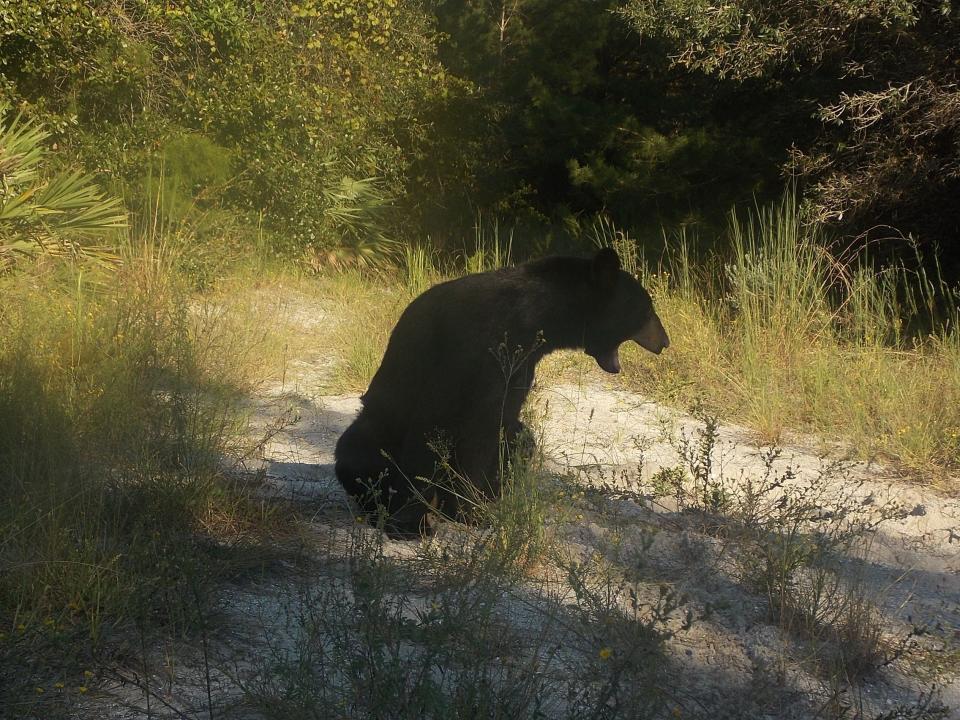Bear vs. alligators: Watch clip of Florida predators battling it out while swimming in St. Johns River
A mighty bear takes on two angry alligators — It's not the plot of any upcoming summer action flick. It's just another day in Florida.
A kayaker captured video of a black bear encountering the reptiles while taking a dip in the St. Johns River, writing that he had "never seen this before."
In an interview with WKMG, Tyler Futrell said he was kayaking Tuesday morning on St. John’s River near the High Banks Marina, roughly 25 miles north of Orlando when he saw the battle go down. In the video, the bear swims across the river when an alligator swims over and lunges.
However, the bear quickly swats away the gator and continues swimming. Before it reaches the shore, it comes across another large gator and gives it a "swat" as well. Futrell didn't know he was recording a bear until he got out of water.
“When (the bear) got out, he just seemed kind of annoyed,” Futrell joked.
Where is the St. Johns River?
The St. Johns River is the longest river in Florida, flowing 310 miles north from Blue Cypress Lake in Indian River County to where it empties in to the Atlantic Ocean east of Jacksonville.
How many black bears are in Florida?

"The Florida black bear (Ursus americanus floridanus) is one of 16 subspecies of the American black bear and is the only bear species in Florida," the FWC's website says.
A Tallahassee Democrat report shared biologists estimate there are 4,000 bears in Florida, who are mostly shy and reclusive and live in hardwood forests. They can weigh up to 350 pounds and eat mostly plants and insects.
The Florida Fish and Wildlife Conservation Commission (FWC) recently out out press statement to advise that juvenile black bears might be seen in unexpected areas as they leave their mothers’ home ranges in search of new locations of their own to settle down.
Juvenile or yearling bears, between the ages of 1½ and 2½, start wandering on their own in spring and summer each year, according to FWC Bear Management Program Coordinator Mike Orlando.
What should you do if you come across black bear in wild?
The FWC says if you encounter a bear at close range, they suggest you to "remain standing upright, back up slowly and speak to the bear in a calm, assertive voice."
"Never approach or surprise a bear. If you see a bear from a distance, enjoy the experience, but do not move toward the bear. If you are close, do not make any sudden or abrupt movements. Back way slowly and be sure the bear has an obvious escape route."
As for if you see one around your home or in a public space, the FWC advises to leave it alone.
“The best thing people can do if they see a bear in an unexpected area is to give them plenty of space and to never approach or feed them and they will typically move along on their own," Orlando said.
This article originally appeared on Fort Myers News-Press: Bear fights off 2 gators in Florida river. Video shows the outcome

